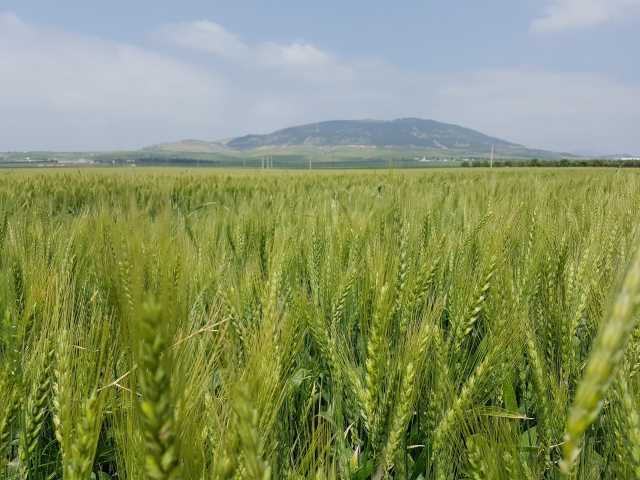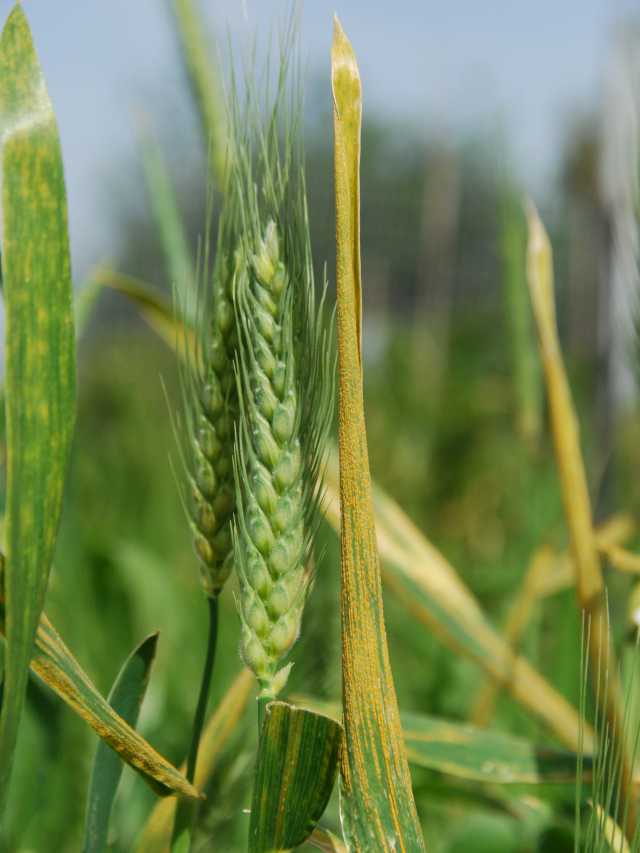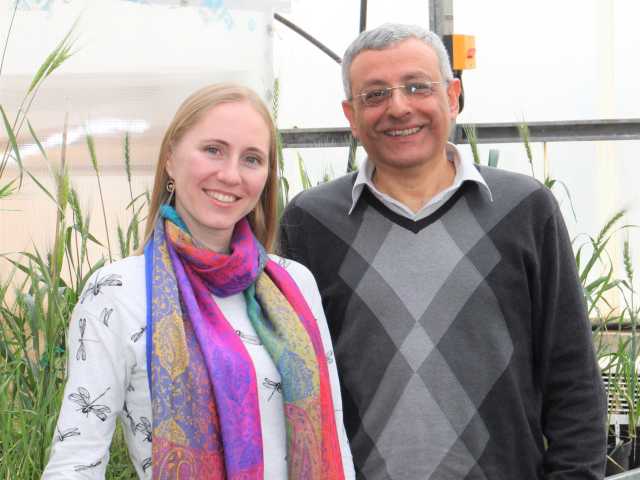
A STEP CLOSER TO
ENDING WORLD HUNGER:
UofH researchers discover wheat protein
that promises to improve food security
 Scientists are warning that global wheat production is facing a serious threat from fungal diseases. Yellow rust attacks wheat leaves and spikes, stopping their photosynthesis and shriveling the grains, consequently threatening global food supplies and contributing to billions in economic losses. Currently, farmers are spraying infected fields with fungicides to limit the damage.
Scientists are warning that global wheat production is facing a serious threat from fungal diseases. Yellow rust attacks wheat leaves and spikes, stopping their photosynthesis and shriveling the grains, consequently threatening global food supplies and contributing to billions in economic losses. Currently, farmers are spraying infected fields with fungicides to limit the damage.
A pioneering study led by Prof. Tzion Fahima and researchers at the Institute of Evolution (IOE) recently identified the structure of a new resistance gene called Yr15 in wild emmer wheat that protects plants against the yellow rust epidemic. “Wheat accounts for 20% of calories and proteins consumed by humans. The identification of the natural disease resistance gene in wild emmer wheat will reduce the use of harmful pesticides and pave the way towards ensuring global food security,” explains Fahima.
The breakthrough discovery is the culmination of a 25-year research project. Researchers utilized the genetic assembly of the bread wheat genome, recently published by the International Wheat Genome Sequencing Consortium (IWGSC), to complete the study. “Due to its enormous size – five times larger than the human genome – it took a consortium of more than 200 scientists from around the globe over a decade to crack the code,” adds Fahima who is among the representatives of Israel in the coordination committee of IWGSC. “Once unlocked, we were able to develop perfect markers that can distinguish between the functional Yr15 gene, and about 20 other non-functional copies of this gene scattered across the wheat genome. This is a powerful tool that can be used by seed companies and wheat breeders around the globe.”
The cloning of the Yr15 gene led to an even more important discovery – the presence of the members of Tandem Kinase-Pseudokinases (TPK), a protein family found in many plant species. “We suggest that TPK regulates the ‘cell death’ mechanism in the immune system that stops the invasion of a pathogen,” explains Dr. Valentina Klymiuk, a co-author of the study who completed her PhD at the Laboratory for Plant Genomics and Disease Resistance under the supervision of Prof. Tzion Fahima and Prof. Abraham Korol. “This finding sheds light on the molecular evolution of immune defense responses in plants, animals and humans,” notes Fahima, “thereby opening up a whole new field of scientific inquiry.”

Prof. Tzion Fahima has taught and mentored an entire generation of Israeli and international wheat researchers. He serves as the Director of the Institute of Evolution, Head of the Laboratory for Plant Genomics and Disease Resistance, and is a corresponding member on the IWGSC Coordination Committee, Scientific Board of the Israeli Gene Bank, and several local and international advisory boards. Dr. Valentina Klymiuk received the 2019 Jeanie Borlaug Laube Women in Triticum (WIT) Early Career Award from the Borlaug Global Rust Initiative (BGRI) for her contributions to the Yr15 gene study and the discovery of the TPK protein family.

